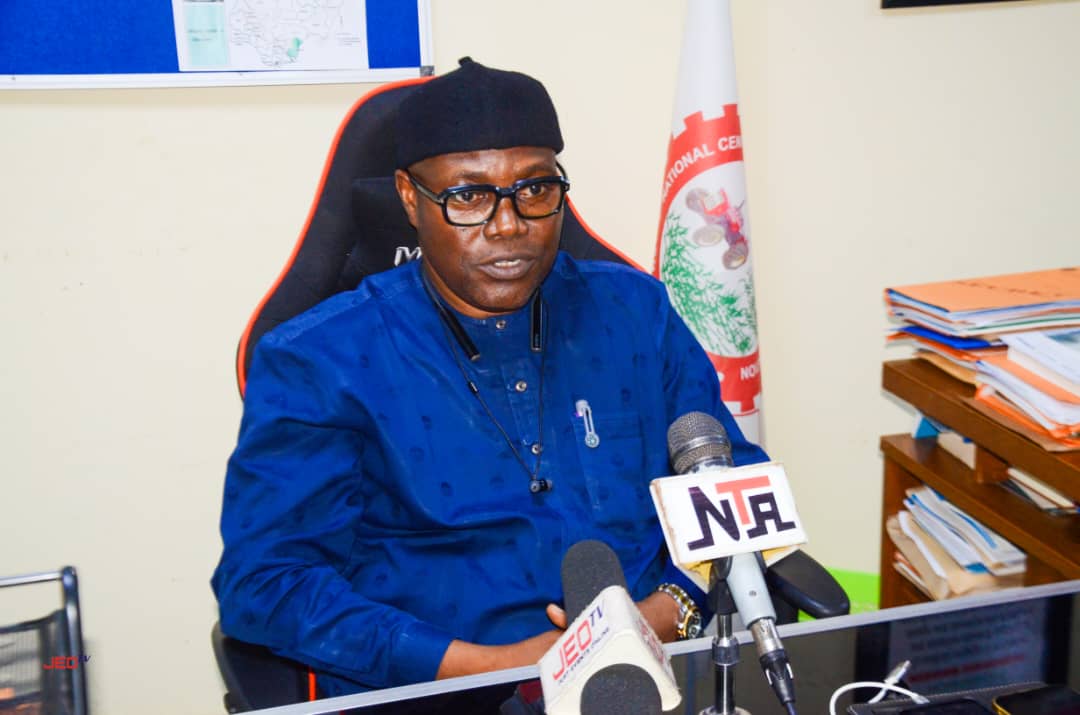An alumnus of the University of Ilorin and Director of Engineering at the National Centre for Agricultural Mechanization (NCAM) has celebrated the institution ahead of its 50th anniversary, describing UNILORIN as “better by far” and a strong pillar in his academic and professional journey. He noted that both his first and second degrees in mechanical engineering were obtained at the University, before moving to the University of Ibadan for his third degree in agricultural engineering “to experience a different environment.”
He also reaffirmed NCAM’s fruitful collaboration with the University of Ilorin, revealing that students from the Departments of Mechanical, Agricultural, and Electrical Engineering frequently undergo industrial training and conduct their final-year projects at the Centre. This, he said, exposes students to practical engineering experiences that complement the theoretical knowledge acquired in the classroom.
Speaking during the maiden National Machinery Exhibition held at NCAM, the Director explained that the Centre was established to develop and promote need-based, home-grown agricultural technologies that reduce drudgery, improve productivity, and protect the environment. Over the years, NCAM has developed numerous technologies suitable for small, medium, and large-scale farmers across various crop value chains, including processing, post-harvest operations, and renewable energy.
He emphasized the need to showcase these technologies to Nigerian farmers, many of whom rely heavily on imported agricultural machines that are often costly, poorly suited to local terrain, and incompatible with the country’s soil and climatic conditions. “We must encourage homegrown mechanization technologies and make farmers aware of the locally developed innovations available today,” he said.
According to him, the machinery exhibition serves as a platform for cross-pollination of ideas among farmers, researchers, and equipment manufacturers, enabling NCAM to assess, coordinate, and upgrade technologies produced by local fabricators. This, he explained, aligns with NCAM’s mandate to test, standardize, and certify agricultural machines used in Nigeria, whether imported or locally produced.
He stressed that many machines developed by indigenous fabricators require improvements to attain acceptable standards, and the exhibition offers an opportunity to evaluate these technologies with the aim of upgrading them for wider adoption. “Research outcomes must translate into commercialization and mass production to reach the end users,” he added.
The Director further stated that the establishment of mechanization substations across Nigeria’s six geopolitical zones—an initiative announced by the Minister of Agriculture—would significantly enhance farmers’ access to NCAM-developed technologies. He noted that NCAM in Ilorin is currently the only mechanization centre in the country, making accessibility difficult for farmers in distant regions. With the substations, prototypes produced at NCAM will be available nationwide for easier adoption.
Addressing concerns about affordability of displayed machines, he revealed that NCAM is working closely with the Federal Ministry of Agriculture and Food Security and Tanta Motors of Egypt. Through a signed Memorandum of Understanding, Tanta Motors will upgrade NCAM prototypes with additional technical inputs for commercialization. He explained that mass production would reduce costs due to economies of scale, ultimately making the equipment more affordable to farmers. Eventually, production and assembly would take place in Nigeria, beginning at Ilorin.
He also highlighted NCAM’s nationwide training programme for fabricators, which allows them to reproduce standardized machines within their localities. This, he said, creates a ripple effect that supports commercialization, spurs innovation, and reduces equipment costs while empowering cottage industries.
Concluding, he expressed pride in the progress being made at NCAM and reaffirmed his confidence in the University of Ilorin. He wished the University continued growth as it celebrates five decades of academic excellence and national impact.
